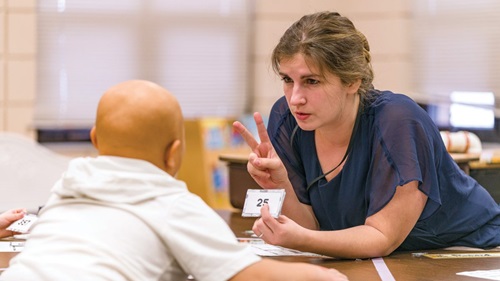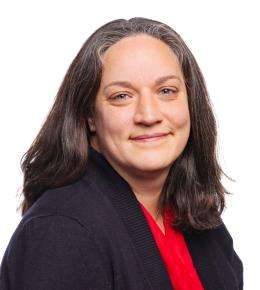
Child/Adolescent Development
Gain an understanding of changes across childhood and adolescence with a minor in child/adolescent development.
Why Study Child/Adolescent Development?
Through the child/adolescent development minor at USD, you'll gain in-depth knowledge of the developmental process in childhood and adolescence, then examine that development within the lifespan. The curriculum is based on Bronfenbrenner’s Ecological Systems Theory, which looks at a child’s development as a function of interactions with their environments (immediate, social, cultural and global). You'll have the opportunity to explore your own development and the development of others through engaging coursework taught by expert faculty. You'll also choose elective coursework that relates to your interests and career goals, giving you the chance to explore additional contextual factors that affect child and adolescent development. The knowledge you gain in this program will serve you well in a variety of careers, including those in education, human service organizations, pediatric nursing, juvenile justice, speech language pathology, social work and more.
Expand your understanding of the developmental process in childhood and adolescence at USD.Degrees & Offerings
Child/Adolescent Development
MinorA minor in child/adolescent development requires 18 credit hours. This comprises a required core of 12 credit hours and six hours of electives across a range of disciplines. Your options for courses include Lifespan Development, Ecology of Child and Adolescent Development, Psychology of Adolescence and more.
Program Details
Undergraduate
College
Department
Contact
Departments & Facilities

Counseling and Psychology in Education
We'll train students to make a difference and impact the lives of others as mental health counselors, school psychologists, or human development and educational professionals.







